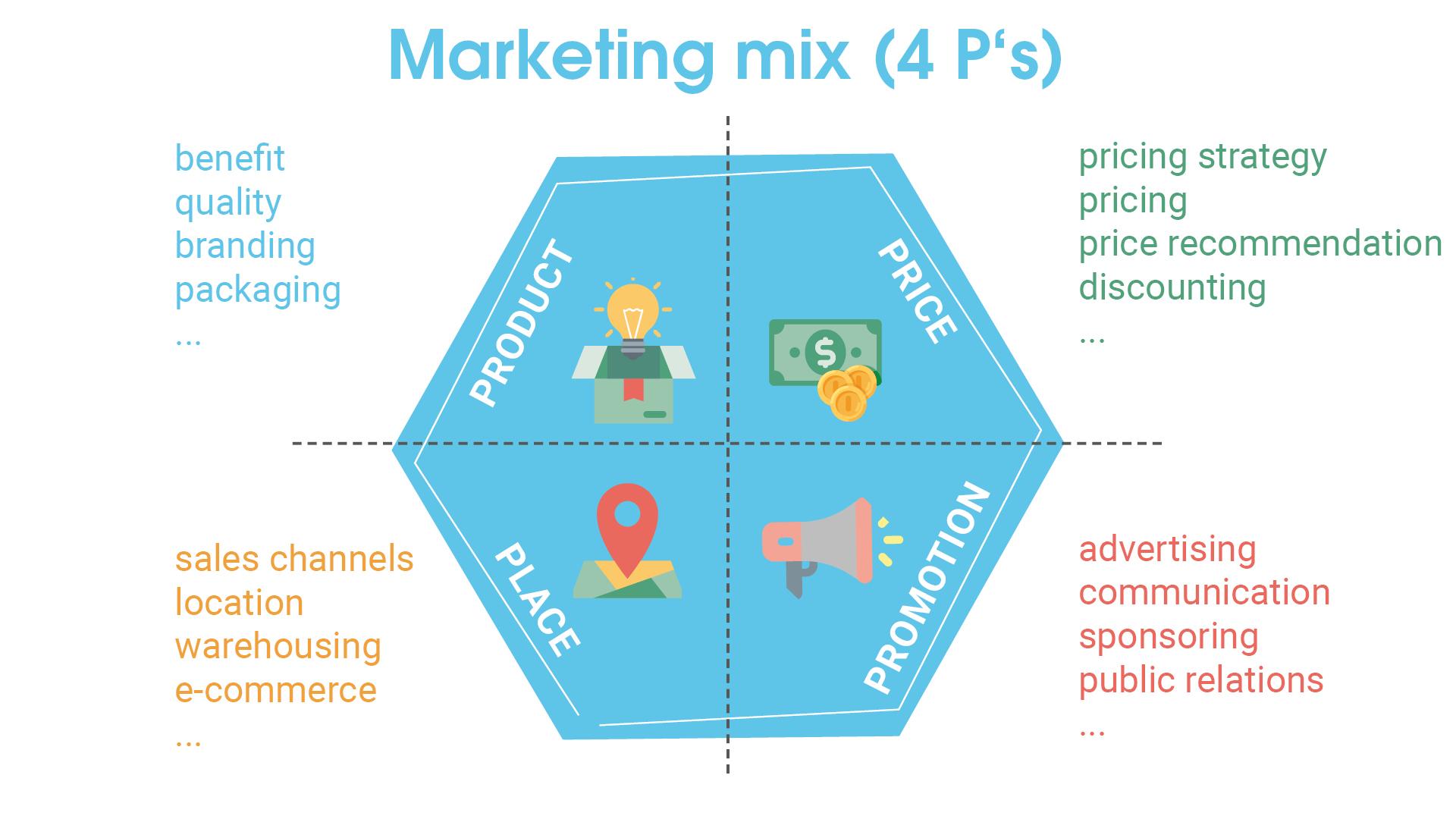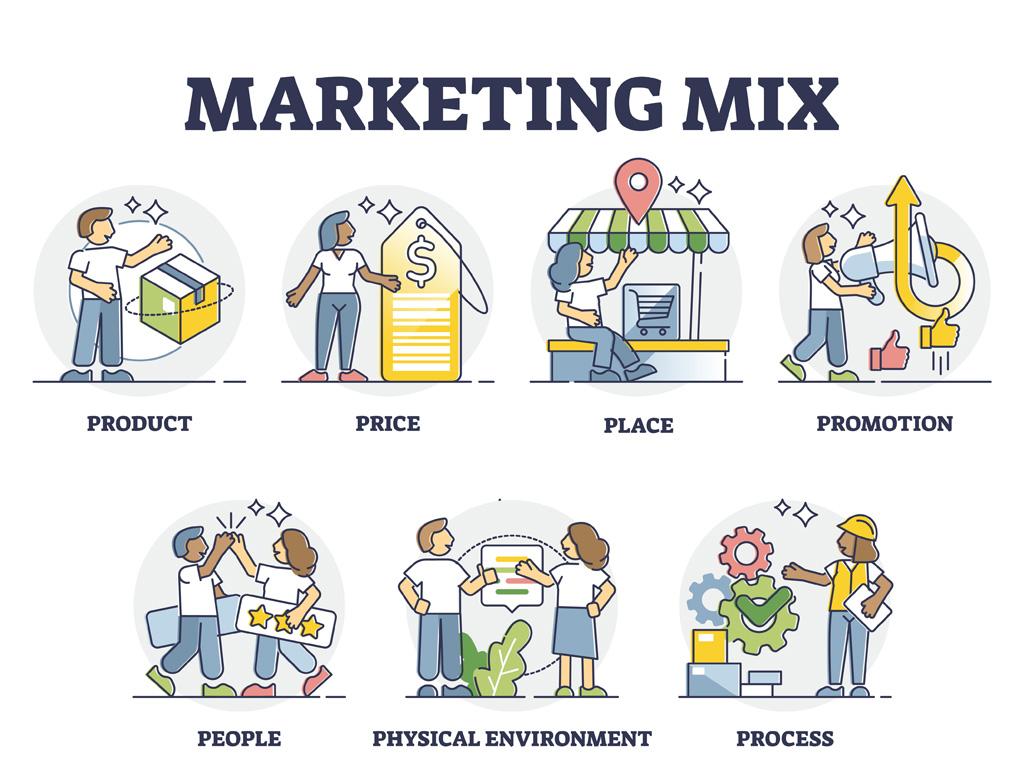In the fast-paced world of business, mastering the art of marketing is crucial for any entrepreneur, whether you’re a startup or a well-established company. One basic concept that has stood the test of time is the “4 Ps of Marketing,” also known as the marketing mix. If you’ve heard this term thrown around but found yourself unsure of what it really means or how it applies to your business, you’re not alone. In the enlightening YouTube video titled “,” the creator demystifies this essential framework, making it accessible for anyone eager to enhance their marketing strategy.
From tech giants like Tesla to emerging small businesses, the 4 Ps—Product, Price, Place, and Promotion—serve as the backbone of triumphant marketing endeavors. By dissecting each element of the marketing mix, you can gain a clearer perspective on how to position your offerings effectively in a competitive landscape. In this blog post, we will delve into the insights shared in the video, exploring how understanding and implementing the 4 Ps can lead to remarkable growth and long-term success for any business. Whether you’re looking to refine your marketing approach or simply seeking guidance on how to attract and retain customers, this exploration of the marketing mix is here to pave your path to success. Join us as we unpack the vital components that can transform your marketing game!
Table of Contents
- Understanding the Essence of the product in Your Marketing Strategy
- Determining the Right Price: Strategies for Success
- Strategic Placement: Where and How to Position Your Offer
- Effective Promotion: Crafting the Message that Resonates
- Q&A
- Insights and Conclusions
understanding the Essence of the Product in Your Marketing Strategy

At the heart of every successful marketing strategy lies a clear understanding of the product being offered. This entails not just identifying what you sell but delving deeply into the essence of your product’s value. Ask yourself, what problem does my product solve? Whether addressing a physical need, a mental challenge, or an emotional desire, your product should be a solution that resonates with your target audience. This reflection drives the direction of your marketing efforts, guiding how you position your brand in a crowded marketplace. Additionally, the uniqueness of your product plays a crucial role in its appeal—what differentiates my offering from competitors? This knowledge allows you to highlight distinctive features in your messaging, ensuring that your product stands out and captures consumer interest.
Once you have a grasp on the core attributes of your product, your marketing strategy must consider how it aligns with appropriate pricing, distribution channels, and promotional tactics. The 4 Ps work in harmony; if one element is out of balance, it can destabilize your entire marketing approach. For instance, no matter how effective your advertising is, if your pricing does not reflect the perceived value or if the product is not available where your customers shop, you may struggle to achieve your sales goals. As you develop your marketing mix, keep the interconnectivity of these elements in mind. The goal is to create a cohesive strategy that not only attracts but also retains customers, fostering loyalty and advocating for your brand. Below are some key considerations when formulating your marketing strategy:
| Key Considerations | Questions to Ask |
|---|---|
| Product | What unique problem does it solve? |
| price | Is the pricing aligned with perceived value? |
| Place | Where do customers expect to find it? |
| Promotion | How can I best communicate its value? |
Determining the Right Price: Strategies for Success

Establishing the right price for your product or service is pivotal in creating a sustainable business model. To navigate through this complexity, consider implementing a mix of four primary pricing strategies:
- Cost-Plus Pricing: Calculate your total production cost and add a predetermined profit margin.
- competitive pricing: Analyze your competitors’ prices and set yours to match or strategically differ.
- Value-based Pricing: Measure what your customers are willing to pay based on the perceived value of your product.
- Penetration Pricing: Introduce your product at a lower price to penetrate the market quickly, with plans to raise prices later.
Whichever strategy you adopt, it’s essential to ensure that your target audience is willing to embrace the price set while also maintaining profitability. It’s not merely about covering costs; rather, effective pricing is about balancing customer expectations and market realities. To help visualize this, here’s a brief overview table of potential strategies along with their key considerations:
| Pricing strategy | Key Focus |
|---|---|
| Cost-Plus Pricing | Profits above production costs |
| Competitive Pricing | Market position relative to competitors |
| Value-Based Pricing | Customer perceived value |
| Penetration Pricing | Market entry and growth |
Strategic Placement: Where and How to Position Your Offer

Effective placement of your offer involves strategically choosing where to sell your product and how to make it accessible to your target audience. This can include both physical locations, such as retail stores or pop-up shops, and digital spaces, like online marketplaces or your own website. To maximize visibility and engagement, consider these key factors:
- Target Market: Identify where your potential customers are likely to shop, whether online or offline.
- Distribution Channels: Choose appropriate channels that align with your customers’ buying habits.
- Convenience: Ensure that purchasing your product is as easy and straightforward as possible.
- Brand Experiance: Create an habitat that enhances the perception of your brand, be it in-store or online.
Additionally, implementing a smart placement strategy allows you to optimize your sales potential. Utilize data-driven insights to inform decisions about where to position your offer. Consider creating a table to compare the effectiveness of various placement strategies:
| Placement Strategy | Advantages | Considerations |
|---|---|---|
| In-store | Immediate customer interaction | Higher overhead costs |
| Online | Broader reach | Requires digital marketing efforts |
| Pop-up Shops | Creates urgency and excitement | Temporary presence |
Effective Promotion: Crafting the Message that Resonates
Crafting a compelling marketing message begins with a thorough understanding of your audience. Identify the emotions, needs, and desires of your target demographic to ensure that your message does not just inform but also resonates deeply. A well-articulated message speaks directly to the customer’s pain points and aspirations, utilizing relatable language and clear benefits. Consider employing a conversational tone that embraces your audience, fostering a connection that encourages engagement and loyalty. This thoughtful approach can transform a standard advertisement into a memorable experience, prompting consumers to not only purchase but advocate for your brand.
Moreover, leveraging insights from the four Ps can considerably enhance your promotional messaging. Each element—Product, Price, Place, and Promotion—weaves into a coherent narrative that presents your brand as both relevant and essential. Here’s a framework to visualize how these elements can solidify your messaging strategy:
| Element | Key Questions | Messaging Focus |
|---|---|---|
| Product | What problem does it solve? | Highlight unique features and benefits. |
| Price | Is it competitive yet profitable? | Communicate value versus cost. |
| Place | Where is it available? | Emphasize convenience and accessibility. |
| Promotion | How will you reach your audience? | Use platforms and mediums that resonate with your target group. |
Q&A
Q&A: Unpacking the 4 Ps – Mastering the Marketing Mix
Q: What are the 4 Ps of marketing?
A: The 4 Ps,commonly known as the marketing mix,consist of product,Price,Place,and Promotion. These elements form the foundation of any effective marketing strategy, similar to how a chair needs all of its legs to stand firm.
Q: Why are the 4 Ps relevant for businesses of all sizes?
A: The 4 Ps are applicable to all businesses, regardless of size. For instance, while iconic brands like Tesla thrive using these principles, small businesses can also achieve significant growth by effectively implementing the marketing mix. It’s crucial to recognize that understanding and utilizing the 4 Ps can create powerful results, even in smaller enterprises.
Q: How should I define my product within the marketing mix?
A: defining your product involves answering two essential questions: What problem does my product solve? And what makes it unique compared to what is currently available in the market? A good product addresses a specific physical, mental, or emotional need, making it valuable to potential customers.
Q: What factors should I consider when pricing my product?
A: Pricing involves determining how much to charge for your product or service. To arrive at an appropriate price, consider one of four main pricing strategies:
- Cost-plus pricing – calculating your costs and adding a markup.
- competitive pricing – setting prices based on what competitors charge.
- Value-based pricing – setting prices according to what customers are willing to pay.
- Penetration pricing – starting with lower prices to enter the market before increasing them.
Make sure your target audience finds your pricing acceptable and that it covers all costs to remain profitable.
Q: What does “Place” refer to in the marketing mix?
A: “Place” pertains to the distribution and location where your product is made available to customers. This could involve physical locations, online platforms, or a combination of both. Ensuring that your product is easily accessible to your target audience is key to maximizing sales potential.
Q: How significant is promotion in the marketing mix?
A: Promotion involves all the strategies and methods used to communicate with potential customers about your product. This can encompass advertising, public relations, social media, and sales promotions. Effective promotion ensures that your target audience is aware of your product and understands its value.
Q: Can you summarize the importance of mastering the 4 Ps?
A: Mastering the 4 Ps is crucial for crafting a successful marketing strategy. Each component plays a vital role in creating a cohesive approach that can withstand market fluctuations. If any one of the Ps is lacking or improperly executed, it can lead to unpredictable results, undermining your overall marketing efforts. By harmonizing these elements, businesses can lay a solid foundation for growth and sustainability.
Q: What is the first step to take in implementing the 4 Ps for my business?
A: Start by thoroughly analyzing and understanding your product. Identify the core problem it solves and seize the chance to differentiate it in the market. Once you’ve established your product’s value,you can effectively move through the other Ps—price,place,and promotion—forming a comprehensive marketing strategy that aligns with your business goals.
Insights and Conclusions
As we conclude our exploration of the Four Ps of Marketing, it’s clear that understanding this essential marketing mix is invaluable, no matter the size of your business. Whether you’re a burgeoning startup or an established company, the principles of Product, Price, Place, and Promotion are the cornerstones that can guide your strategy toward success.By honing in on what makes your product stand out,carefully considering your pricing strategy,choosing the right distribution channels,and crafting compelling promotions,you can navigate the competitive landscape with confidence.Remember, even giants like Tesla have mastered these principles to achieve remarkable results, showcasing that they’re not just for big players; the four Ps can be tailored to your unique business needs.
We invite you to take this knowledge and apply it in a way that resonates with your brand’s vision and objectives.Experiment,analyze,and moast importantly,don’t hesitate to revisit these core concepts as your business evolves. Thank you for joining us in this discussion, and we hope you found the insights helpful for mastering your marketing mix. If you enjoyed this post, be sure to share it and stay tuned for more valuable content that can assist you in your marketing journey!



